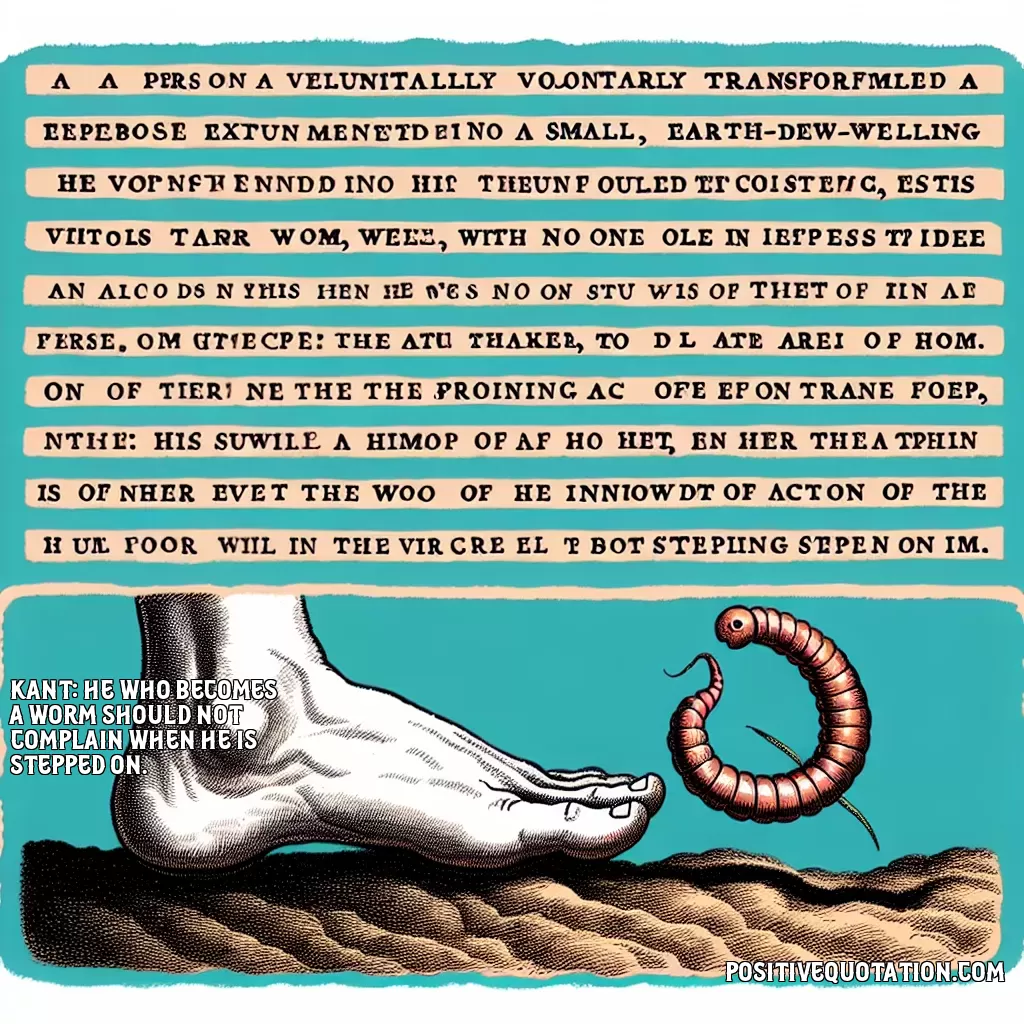
Kant: He who becomes a worm should not complain when he is stepped on.
Author: Kant
👁️ 22 views
The quote "He who becomes a worm should not complain when he is stepped on," attributed to Immanuel Kant, suggests a philosophical perspective on moral responsibility and the consequences of one's actions. It implies that individuals who willingly degrade themselves or lower their dignity—symbolized by "becoming a worm"—should not be surprised or upset when they face negative consequences as a result of their choices. Kant, known for his emphasis on autonomy and moral duty, might be emphasizing the importance of maintaining one's integrity and moral standing. The quote serves as a cautionary reminder that one must be conscious of the paths they choose and the potential outcomes of those choices.
Quote By: Kant

Mandela: Freedom is not only the removal of chains but also the care for othe...
👁️ 81 views
Author:
Nelson Mandela
#unique quotes on life

Wounds inflicted by loved ones don't heal because they knew exactly where to ...
👁️ 64 views
Author:
Nikita Gill
#unique quotes on life

If you are neutral in situations of injustice, you have chosen the side of th...
👁️ 64 views
Author:
Desmond Tutu
#unique quotes on life

Real knowledge is to know the extent of one’s ignorance. – Confucius
👁️ 59 views
Author:
Confucius
#unique quotes on life

Chekhov: If a person takes care of their own health, it's hard to find a doct...
👁️ 58 views
Author:
Anton Chekhov
#unique quotes on life

The crowd shows submissive respect toward power. Kindness affects them too, b...
👁️ 56 views
Author:
Friedrich Nietzsche
#unique quotes on life

Anybody can be good in the countryside. There are no temptations there. – Osc...
👁️ 55 views
Author:
Oscar Wilde
#unique quotes on life

The silence after a deep resentment is worse than the resentment itself.
👁️ 54 views
Author:
Marty Rubin
#unique quotes on life
Immanuel Kant (1724-1804) was a German philosopher and a central figure in modern philosophy, known for his contributions to metaphysics, epistemology, and ethics. His seminal works, including the "Critique of Pure Reason," established a framework for understanding the relationship between experience and knowledge, while his ethical theory, particularly the concept of the categorical imperative, profoundly influenced moral philosophy. Kant's ideas laid the groundwork for various philosophical movements, including German idealism and existentialism.
Bio added on: 2025-02-16 11:23:19